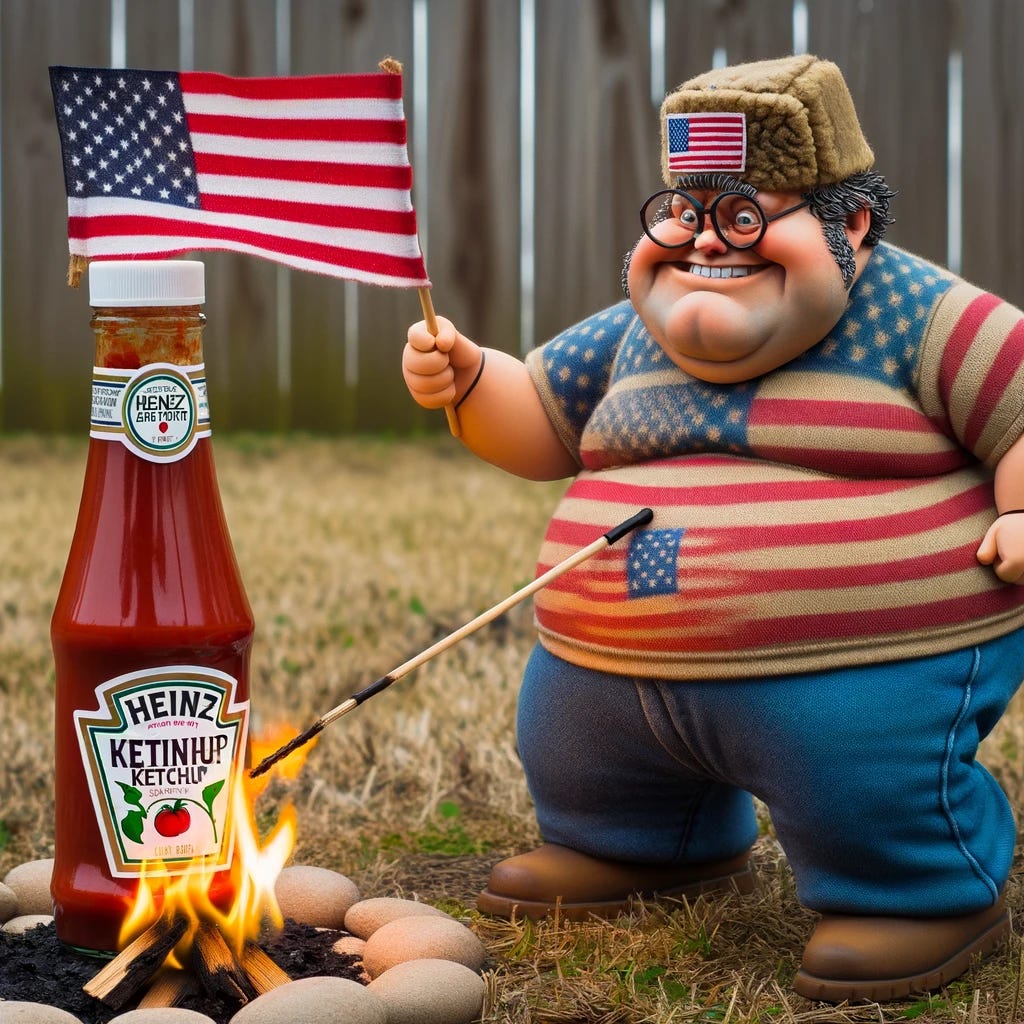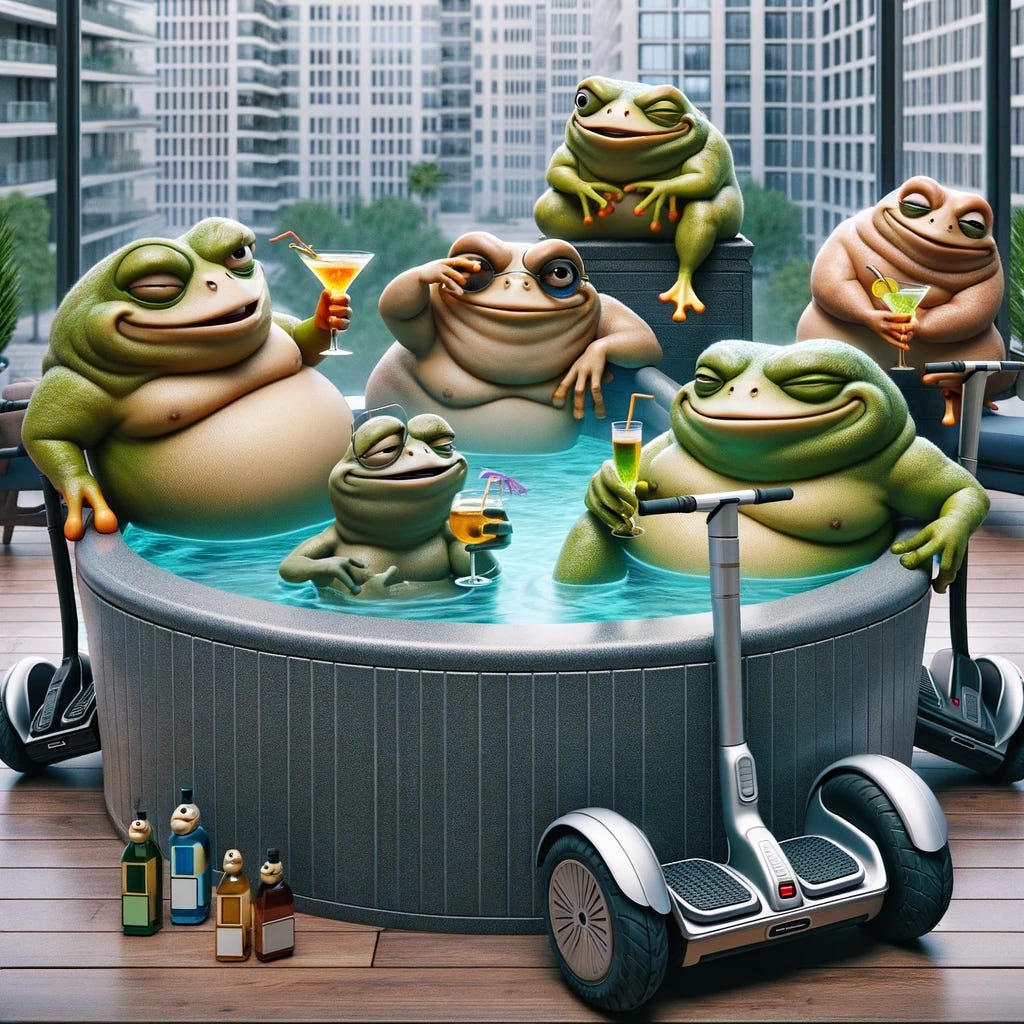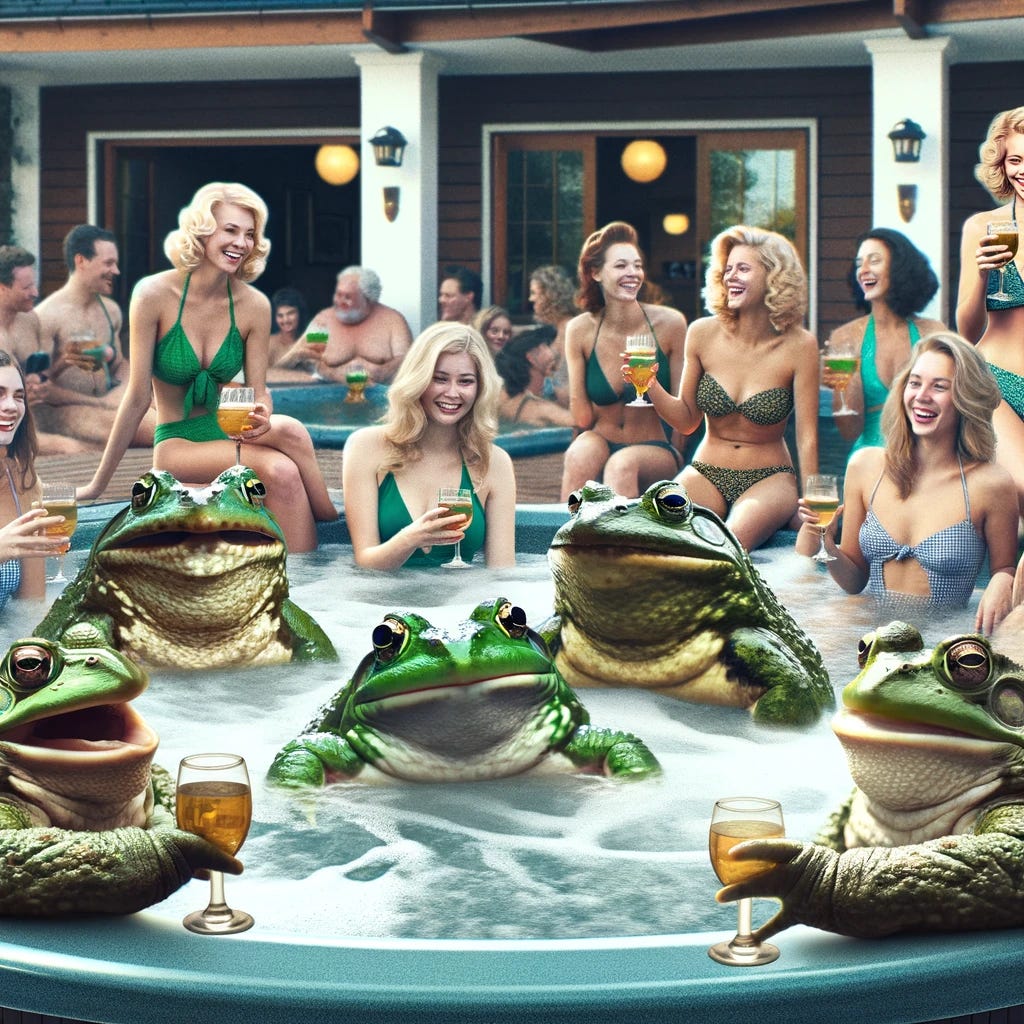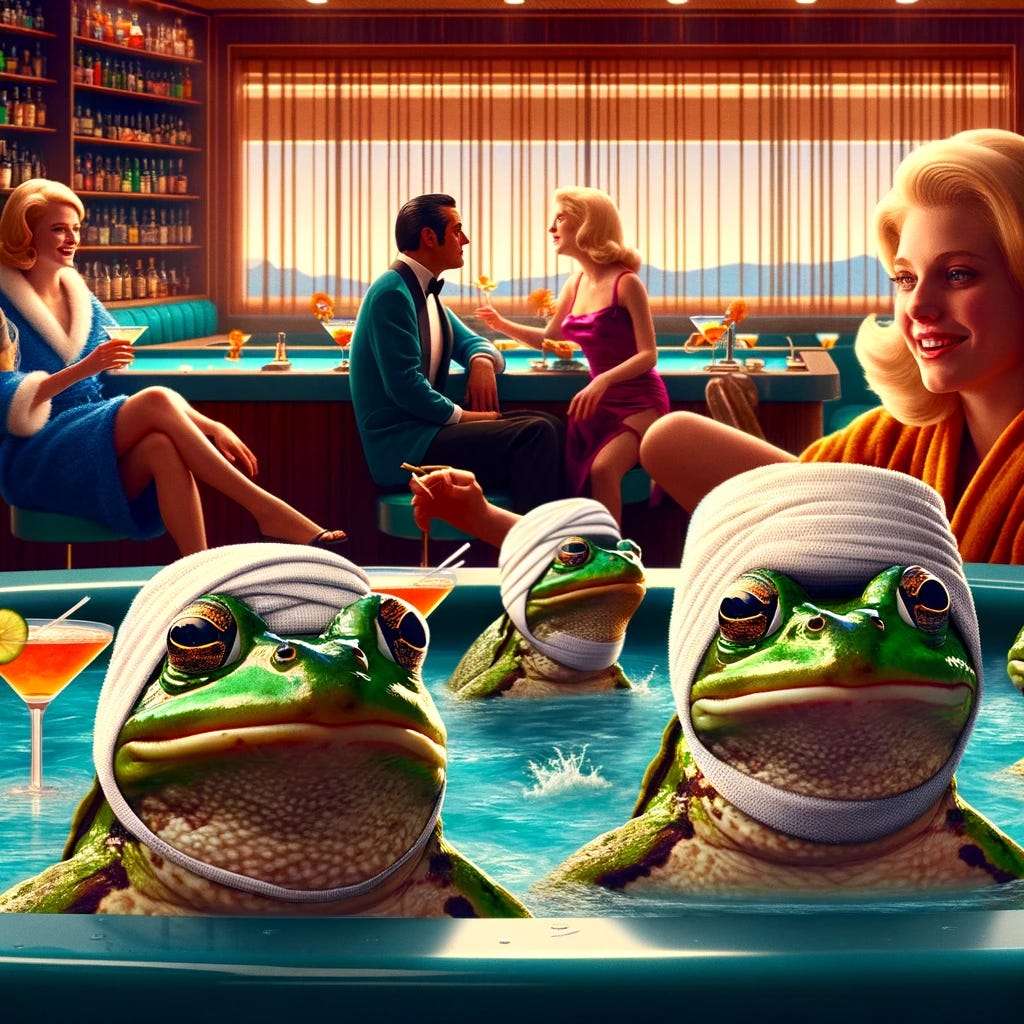A little story about my friend, Al Gore
An allegory within an allegory… or something:
I’d first heard of the the frog-boiling experiment back in 2006. Fittingly, it was from our [almost] President (and longtime friend of the Jackuzzi) Al Gore in An Inconvenient Truth, his documentary about climate change. My mom took me to see it in theaters when I was 10 or 11. From what I remember, we had to drive an hour or so to the nearest big city to find anywhere that was screening it (it certainly wasn’t being shown at the local AMC or Regal); some indie place, I’m assuming, or a university campus.
For some historical context, Bush would’ve been in the middle of his second term, having won the 2004 election (fair and square) against John Kerry, about whose wife, incidentally, I have a funny anecdote in the book: she came from the Heinz family, American condiment magnates, which as you can imagine put American evangelicals/neocons in a tricky position. Ketchup and yellow mustard were as American as baseball, as the Bible, as pizza, as French fries. And you’re telling me if I want to lay a tongue on those sweet nectars I’ve gotta line the pockets of the tree-huggers who want to destroy our country? Not gonna happen.
Thankfully, there were a couple of alternatives manufactured by companies that weren’t treasonous, if you knew where to look…
Anyway, at the time, things like “recycling,” “sustainability,” “greenhouse gases,” and “global warming” were all relatively novel concepts. They weren’t actually novel, of course. Scientists had been talking about them for years, but just hadn’t had much success influencing the mainstream narrative (which was that “we had nothing to worry about.” Full steam ahead. Drill/frack away. Etc.) Naturally, GM and BP and Shell and all the other multinational fossil fuel corporations had known about the impact of rampant industrialization for decades (almost a century, in fact). Happily for them, prior to the internet, the media and mainstream narrative was far easier to control. (And keep in mind that it’s not even particularly hard to control now.)
Only by the early 2000s did it seem like there was a wide-spread level of awareness/acceptance, even among professed liberals. But it was still a fringe topic on the national stage, sort of like how we talk about cryptocurrency today: lots of people may have heard about it, but far fewer know/care enough to have an opinion (not that ignorance has ever stopped anyone from having an opinion. But you get the point).
People were still only just working out that maybe, just maybe, what we were eating might not be healthy - the same went for our sedentary lifestyles. Indeed, those years were marked by government initiatives to get us active: Jump Rope For Heart and a sort of boot-camp thing where we had to go do jumping jacks in the schoolyard. It must have been something to do with this, but I’m not sure. (By the way, I notice that it gave “participation awards” even to kids who finished in the bottom 50th percentile. I thought they hated that?) Case in point, though, we were still being bombarded with “Got Milk?” propaganda and all the “breakfast [cereal] is the most important meal of the day” stuff - so it was very much a mixed bag in terms of the country’s stance on this whole “health” and “environment” nonsense.
As a fifth-grader, it didn’t even occur to me that someone would watch this and see a political/self-serving message; the pathetic, unfounded whinings of a sore loser, or whatever. So, in that regard, I now realize it was the perfect introduction to our political discourse. I’d have never guessed that something as fundamental as, say, the atmosphere or the oceans were even politicizable (new word).
So it’s interested me ever since how certain issues are deemed political and others are sacred, albeit it’s always done kinda willy-nilly: like how after every school shooting all the NRA-funded politicians hurry out to scold anyone who asks whether the shooter (some Navy SEAL wannabe/aspiring neo-Nazi who spent the last 6 months in a psych ward and was on a cocktail of anti-depressants and tranquilizers strong enough to kill a bull elephant) should have been asked to take a background check. “Please… You always do this. Just for once, can we not? Now isn’t the time… Give us some space to heal and reflect.”
Back to the story: as I mentioned in the previous post, when I went to research the frog claim, I learned that its validity was, to my horror, in dispute. It was now widely agreed to be an urban legend: it turns out that frogs will, if given the chance, escape water that they find uncomfortably hot (approx. 25º Celsius) - regardless of how slowly it was brought up to that temperature.
While this revelation may have been a boon to the amphibian community, it certainly wasn’t one for yours truly: a whole goddamn chapter of my book - the denouement, for christ’s sake - was predicated on the animals not fucking sensing the danger. Talk about an inconvenient truth.
Oh - sorry - you’re right. Not just a chapter, an entire, thriving online community - of which we’re very proud, aren’t we, guys? …guys?
Please respond. I’d hate to have had all these made for nothing:
Before I closed the wikipedia page in disgust, though, I wanted to learn, out of curiosity, just how the scientists had achieved their invalid result. Was there any chance these critiques were unfounded?
Nope.
What the hacks had done, it turns out, was give the frogs a full-blown lobotomy, or even gone in and removed parts of the subjects’ - or their entire - brains. Yikes. There it was, in black and white. Our dreams dashed, our hopes scuppered:
But then it hit me. What if this wasn’t actually a death sentence for our hopes and dreams? Maybe we didn’t have to throw the frogs out with the [metaphorical] pot-water, and there was life in this old girl yet…
(To be continued…)
Happy easter! A reminder that we should be careful who we crucify…







